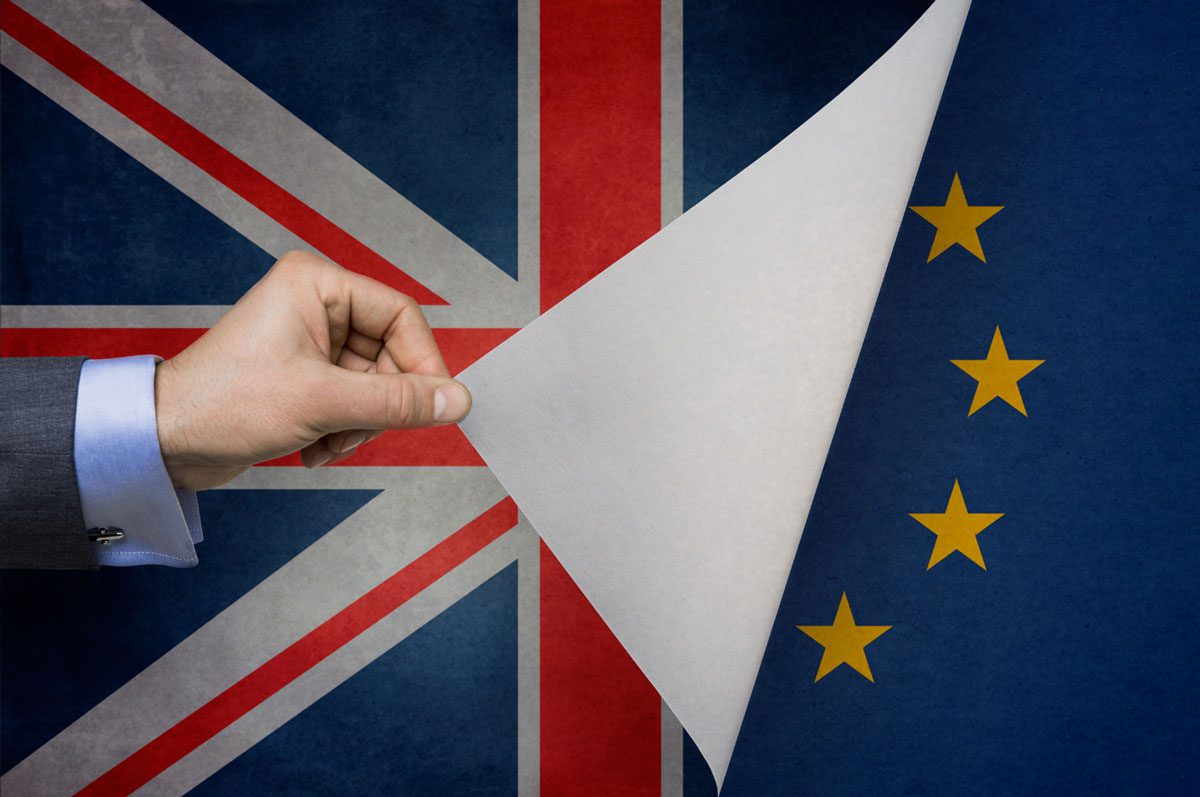Sage Ai for CFOs: From reporting to real-time intelligence
Today’s SaaS CFO is expected to be far more than a financial gatekeeper. They are strategic partners to the CEO, trusted voices for investors, and...
Switchboard: 0344 880 61411 | Helpdesk: 0344 880 6155
The UK government has enacted significant legislation to facilitate businesses establishing new relationships with companies based in the EU.
This guide (based on a Sage Hub article) contains essential checks to ensure your business transactions are responsive to new post-Brexit scenarios. There is a particular focus on the management of UK imports and exports after Brexit.
You might have to pay Customs and excise on imports, as well as VAT.
Due to the existing customs border between the European Union and the United Kingdom, trades between the United Kingdom and the European Union are now considered imports and exports.
After Brexit, the UK Global Tariff (UKGT) replaced the EU’s Common External Tariff.
This rule applies when importing from countries with which the UK does not have a free trade agreement.
You can check the import taxes using the search tool on the government website.
As publicised in the media, the UK and EU agreed to the Trade and Cooperation Agreement (TCA) before Christmas 2020. This free trade agreement is alluded to as a “Trade Deal”.
The TCA presents two contemplations for organisations that import/trade between the UK and EU:
The UK and EU agreed that goods that had free movement before Brexit are now 0% tariff and not restricted by quotas. This agreement is the so-called preferential treatment, meaning there won’t be any customs duties or limits to the number of goods that businesses can import and export between the UK and EU.
It doesn’t mean there will not be customs conventions and documentation. There are conditions, one of which is rules of origin.
Traders can claim preferential treatment only if they comply with the rules of origin. In short, the legislation stipulates those goods (or the materials used to make them) must come from the UK or the European Union.
You must prove that this is the case by obtaining a supplier’s declaration or equivalent documents. This document is the “statement of origin” for the import and provides the so-called “importer’s knowledge”.
If preferential treatment doesn’t apply, importers are still able to trade their goods. Yet, the World Trade Organisation’s Most Favoured Nation (MFN) rules will apply. To sum up, goods coming into the UK may have duties applied according to the UK Global Tariff.
UK/EU exports might have the EU’s Common External Tariff applied — according to which EU country they’re sent. There might be quotas that limit the number of goods that one can trade at a given time.
Preferential treatment via the TCA is not always the best route to take. Using MFN rules can provide more freedom on where you source products or materials used to make them.
You may see low or even zero tariffs as there may be quotas that your trade will not exceed.
The UK government made efforts to prevent a sudden strain on resources regarding customs and VAT processes.
The basics are as follows:
You might have to pay Customs and excise duties on imports into the UK from the EU. The UK Global Tariff (UKGT) has replaced the EU’s Common External Tariff for UK imports.
It applies to imports from EU countries and countries for which the UK does not yet have a trade agreement —including the US. You can check the tariff for your imports using the UK Gov’s lookup tool.
Also, there may be cases where you may need to apply for a license to import certain products into the UK, and some products may require payment of an inspection fee.
Many companies exporting to the EU as of January 1, 2021, use a simplified declaration procedure.
A simplified declaration means that you do not need to provide as much information as a complete advance declaration but instead use a pre-shipment advice declaration.
You still will need to provide the remaining customs export information afterwards.
You can also use the Entry in Declarant’s Records (EIDR) procedure, although this applies to goods that don’t need a pre-departure declaration.
Simplified declarations and entry in declarant’s records need you to apply to HMRC and need authorisation before using them.
If you want to make export declarations, you must register with the National Export System (NES) to declare online. You will need the so-called CHIEF badge role.
After that, you can make export declarations via the Internet, email, or through software.
You can also use Community System Provider (CSP) instead of all these options. You can use your CHIEF registration by using your own import/export software to access the system and pay a fee.
Some products require export licenses, and there are additional regulations for alcohol, tobacco, certain oils, and controlled products.
You must make sure these settings are in place before exporting.
Most businesses started using a customs intermediary, as many already did for imports and exports to non-EU countries.
For businesses that import and export regularly, there are two main options:
Freight forwarders act like a travel agency that transports goods. Their goal is to provide a complete “door-to-door” service between buyers and sellers.
Some may provide port or port service (and vice versa), or even port or port service. Before and after this, you or your customers must be responsible for logistics.
The freight forwarder knows the required documents: export, customs, license, security and protection. They often use their customs knowledge to ensure that you pay the lowest cost.
Freight forwarders may have in-house freight services, but they will take care of the necessary logistics on your behalf.
They often use group bookings to keep costs down. If the goods need to be stored, they will take care of that and the insurance.
Customs brokers (also known as customs agents) focus only on the customs paperwork and payments.
A customs broker will check the all-important classification and get you the correct commodity code. They know the required documentation for all products needing an import licence.
The customs brokers are registered with the customs authorities, thus speeding up communications. They will know the timescales required so they can troubleshoot.
They can also file import and export documentation for you.
If you’re a regular importer and have to pay duty, taxes or VAT on goods, the customs broker will often have a duty deferment or a VAT deferment account that you can use, which means you don’t have to pay the duty or VAT immediately.
This deferment can help with your cash flow and ensure the goods can get through the port faster.
Customs declarations include several pieces of information including:
Import and export declarations can be complex and need software that plugs into the Customs Handling of Import and Export Freight (CHIEF) system.
The Customs Declaration Service, or CDS, already used for goods moving to or from Northern Ireland, will replace this. Currently, the CHIEF system remains in use for most imports and exports.
Since January 1, 2021, all UK businesses based in Great Britain importing or exporting goods to or from the EU have needed an Economic Operator Registration and Identification (EORI) number.
Northern Ireland-based businesses might need an EORI too, and even a second XI-series EORI.
They might need up to three different types of EORI, depending on the location of your business and what it does:
You need an EORI number starting with GB to trade goods with EU member states. If your business moves goods only between Northern Ireland and Ireland and not elsewhere, you generally do not need an EORI number.
If this case applies to you, you’ll need a second EORI number that starts with XI. This circumstance includes moving goods between Northern Ireland and the rest of the UK / Northern Ireland and non-EU countries.
If your business gets customs decisions in an EU country, you need to obtain an EORI number from the customs authorities in the EU country where you request your first decision.
In 2019, the UK government began sending out GB series EORI numbers to businesses that it believed required them.
You are likely to have received these at your company’ address, as provided with your VAT registration. If you haven’t obtained your EORI number yet, you can apply for one online.
The UK government has also issued XI-series EORI numbers, including all businesses registered with the Trader Support Service (TSS). You won’t receive an XI EORI number unless you already have a GB number. Again, you should apply as soon as possible if in doubt.
A simplified customs declaration means that you can import if your commercial records allow it or submit a simple customs declaration before importing.
Then, up to six months after the import date, you submit an additional customs declaration to HMRC, to which customs and VAT (if applicable) will be due. You need permission from HMRC to use the simplified customs filing process.
Also, if the business is VAT registered, you will need to use deferred VAT. Note that you can continue to use the simplified customs declaration process after the end of the six-month deferral option (i.e. from July 1, 2021).
If you import regularly, then paying any customs duties, VAT and excise duty monthly might make more sense, rather than paying them immediately upon import. A duty deferment account lets you do this.
Organisations that you use to move goods across borders should know many of the above details before shipping.
You should consult them as soon as possible to find out what they need and when.
There may be other issues that you need to consider when importing, such as the correct use of border control points and advance notice for the movement of goods.
Incoterms revise the commercial conditions of your contract relating to the importation of goods. These will help you understand who is currently responsible for customs duties and additional shipping and insurance costs.
In addition, Incoterms define when risk and responsibility pass from seller to buyer.
Northern Ireland remains subject to the EU’s customs and VAT regime when doing business with the Republic of Ireland and the EU.
From a customs point of view, the transport of goods from Northern Ireland to the UK has not changed.
There’s no other process, paperwork, or restrictions. It is now necessary to declare goods exported to Northern Ireland as having no “risk” of movement.
To be considered risk-free, one of the following must be valid for goods shipped from the UK to Northern Ireland:
The EU tariff is zero, or the product is eligible to apply for zero tariff, zero quota allocation of preferential tariff rate, as described earlier in this article. Going this route will involve completing customs paperwork, just like any export to the EU.
You sell your products to the UK end consumers under the UK Trusted Trader program. Under this regime, you declare for each export that the goods are not at risk of transition to the EU, with supporting evidence.
The UK Government is running a new Traders Support service for businesses bringing goods to and from Northern Ireland. It offers free assistance for companies buying and selling between Northern Ireland and the UK.
The Support service will also help you import goods into Northern Ireland from outside the UK.
If you’re based in Northern Ireland or ship goods from other parts of the UK, it is essential to register to get their advice.
Download our up-to-date Sage Import/Export Checklist

Today’s SaaS CFO is expected to be far more than a financial gatekeeper. They are strategic partners to the CEO, trusted voices for investors, and...

Independent research firm Information Services Group (ISG) has classified Sage X3 as a Leader in its evaluation of ERP solutions for midsized...

Independent analyst ISG has positioned Sage X3 as a Product Experience Leader for mid-sized manufacturing organisations.
Keep up to date with CPiO's latest blogs, news and events

Over the past decade, businesses have recognised the growing need for accurate, real-time information to support operational and strategic...
Few companies bucked the trend of the long recession and managed to achieve double digit growth throughout. Even fewer are within the manufacturing...
.png)
For Shop@PhysioWorld, a hosted, cloud based technology model has been a fundamental aspect of business growth over the past three years. But as Paul...
